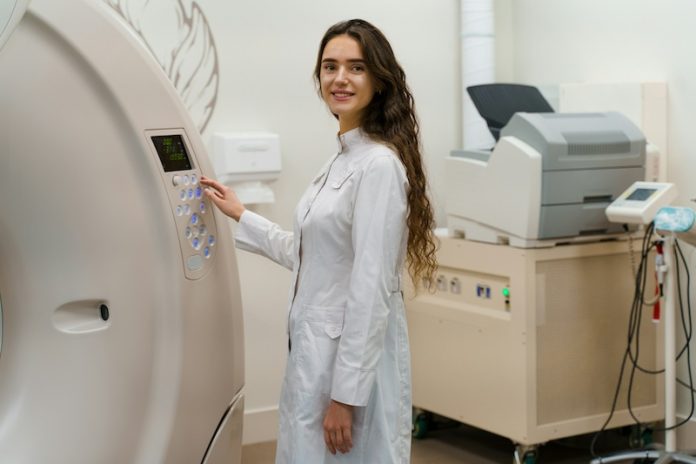
In an exciting advancement for brain tumor diagnosis, a team from the Vall d’Hebron Institute of Oncology’s Radiomics Group and the Bellvitge University Hospital’s Neuroradiology Unit has developed a groundbreaking tool called Diagnosis in Susceptibility Contrast Enhancing Regions for Neuroncology (DISCERN).
This open-access, deep learning tool has been designed to improve the accuracy of diagnosing brain tumors through standard MRI scans, showcasing the power of artificial intelligence (AI) in the medical field.
Published in Cell Reports Medicine, the study behind DISCERN demonstrates its effectiveness in accurately identifying brain tumors from perfusion MRI images, surpassing traditional diagnostic methods.
This tool focuses on differentiating between glioblastoma multiforme, brain metastasis from solid tumors, and primary central nervous system lymphoma, which collectively account for a significant portion of malignant brain cancers.
Correctly identifying these tumors is crucial as each type requires a unique treatment approach.
Traditional diagnostic processes often rely on MRI assessments before and after contrast administration, but they may still necessitate neurosurgical procedures for a conclusive diagnosis, posing additional risks to patients’ quality of life.
DISCERN aims to mitigate these challenges by using AI to recognize tumor-specific patterns in MRI images, reducing the need for invasive diagnostic methods.
The development of DISCERN is the result of over five years of research into magnetic resonance perfusion imaging biomarkers for brain tumor diagnosis.
By training the AI model with data from 40 diagnosed patients, encompassing 50,000 voxels (three-dimensional pixels used in MRI scans), the team has equipped DISCERN to differentiate between the three common types of brain malignancies with a notable accuracy rate of 78%.
DISCERN operates by learning the unique characteristics of each tumor type from the vast database of MRI scans, similar to how AI can learn to distinguish between images of dogs and cats.
This deep learning approach allows DISCERN to offer a non-invasive, precise diagnostic option, aiding medical teams in making informed decisions regarding surgical needs and treatment plans.
The collaboration for this study also included experts from the Bellvitge Biomedical Research Institute, Clínic Hospital in Barcelona, HT Medica in Andalucia, and the University of California, San Diego, highlighting the global effort to improve brain tumor diagnostics.
By making DISCERN available as a user-friendly, open-access application, the researchers aim to facilitate its clinical adoption and encourage further validation studies.
This innovation represents a significant step forward in the use of AI in healthcare, offering hope for more accurate and less invasive diagnostics for patients with brain tumors.
If you care about cancer, please read studies about a new method to treat cancer effectively, and this low-dose, four-drug combo may block cancer spread.
For more information about cancer prevention, please see recent studies about nutrient in fish that can be a poison for cancer, and results showing this daily vitamin is critical to cancer prevention.
The research findings can be found in Cell Reports Medicine.
Copyright © 2024 Knowridge Science Report. All rights reserved.



